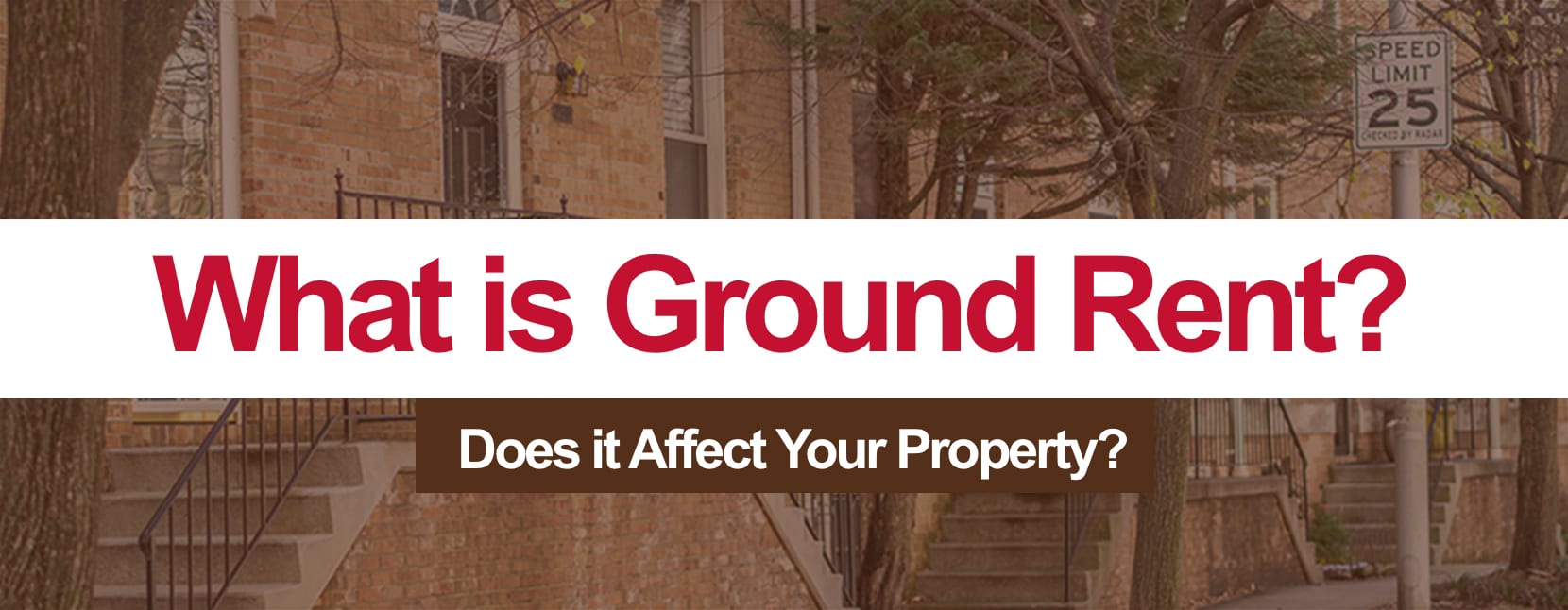
Property Owners Have Little to Fear From Maryland Ground Rent
Title to real property in Maryland is either “in fee simple“; meaning there is no ground rent, or “subject to a ground rent” in which case it is known as “leasehold property.”
Ground rents originated in Maryland when ownership of land was concentrated among the founding families, who leased parcels to tenants under long-term leases.
How Ground Rents Work Today
Today, the ground-rent system operates mainly in Baltimore and in parts of Baltimore County. There, developers subdivided tracts of the ground and built houses. Many of these houses were sold, subject to a ground lease that required the homeowner to pay a semiannual rent to the developer. The ground rent would typically range from $15 to $240 a year. The typical ground lease is for a term of 99 years, automatically renewable forever. The developer, who created the ground rent, would retain it for an investment or sell it to another investor.
Some people feel that if their home is subject to a ground rent, they are in jeopardy because they do not really own the ground. This concern is not warranted. The only obligation of homeowners is to pay the ground rent for as long as they own the property.
How Ground Rent Works
The owner of the ground rent has no right to take possession of the property as long as the ground rent is paid. Even if it’s not paid, the ground rent owner has to go through a court proceeding and give ample notice to the homeowner before any action can be taken that jeopardizes the homeowner’s rights to the property. The developer or investor must register with the Maryland Department of Assessments before he can charge and collect ground rent. Unlike renting an apartment, the tenant of a ground lease is obligated to pay the Ground Rent only if the ground rent owners send an invoice to the homeowner stating that the ground rent is due. If the developer/investor fails to send an invoice for payment and then tries to collect prior year ground rent due, State Law states that the homeowner is liable only for three years’ of background rent.
Under Maryland law, the owner of residential property has a right to redeem most ground rents. The redemption price for most is 16.66 times the annual ground rent. So, a $120 annual ground rent can be redeemed for $2,000. See our other post which specifies the ground rent redemption rate, which varies depending on the date that the ground rent was originally created.
There is no reason to hesitate purchasing residential property or small apartment building that is subject to a ground rent.
You can get access to state real property tax assessment records here to see if the ground rent owner is properly registered. On this website, you can find the address and phone number for the ground rent owner.
How to Pay Ground Rent
Ground rents are paid in arrears. In other words, a ground rent due in July covers the period from Jan. 1 through June 30. You should send a bill for the ground rent 30 to 45 days before the due date. If the leasehold property is mortgaged, often the mortgage company will pay the ground rent directly to you. It is advisable for the homeowner to look up the name and address of the ground rent owner and send this information to the mortgage company so that the mortgage company can pay the ground rent. We also advise contacting the ground rent investor/developer and inform them of the mailing address and mortgage account number for the building owner’s lender so that the ground rent investor/developer can send an invoice to the lender.
Getting A Homeowner to Pay Ground Rent
If you are a ground rent investor and the homeowner is not paying the ground rent, we suggest the following basic remedies for nonpayment.
First, look up the homeowner’s contact information on the Tax Assessment office’s website. Send them an invoice and a demand letter. Demand payment in full and give a deadline (state the actual date of the deadline in the demand letter).
Second, when the demand date passes with no payment received file suit in District Court for up to three years of background rent. Because this is a small claim, neither party is required to have an attorney. The court costs are minimal. It is necessary to serve the suit on the property owner and the lender. Service can be made by certified mail or by personal delivery of the lawsuit and court summons to the defendant or an adult living in the defendant’s residence.
Thirdly, file a suit in the local Circuit Court to repossess the property. The object of a suit for repossession is to eject the owner of the leasehold and foreclose the rights of the leasehold owner and any mortgage holder.
Legal requirements for an ejectment suit are more complex. The ground rent owner is well advised to hire an attorney to file and prosecute the legal action. The leasehold owner and mortgagees must be given adequate notice of the suit and have ample time to “save” their interest in the property by paying the past-due ground rent and all costs and damages sustained by the ground rent owner.
Proper management of a ground rent portfolio requires systematic billing and follow-up procedures to make sure payments have been received.
Homeowners and small apartment property owners are advised to keep records for at least 3 years of their payments of ground rents in case someone claims that ground rent payments were not made.

Questions? Contact Ben Frederick Realty to Learn More
For more information regarding apartment property in Baltimore, contact Ben Frederick Realty. For three generations and over 100 years, the Frederick family has been helping investors and owners of multi-unit and apartment properties and can be reached at (410) 752-6400 or by email using our contact page.

